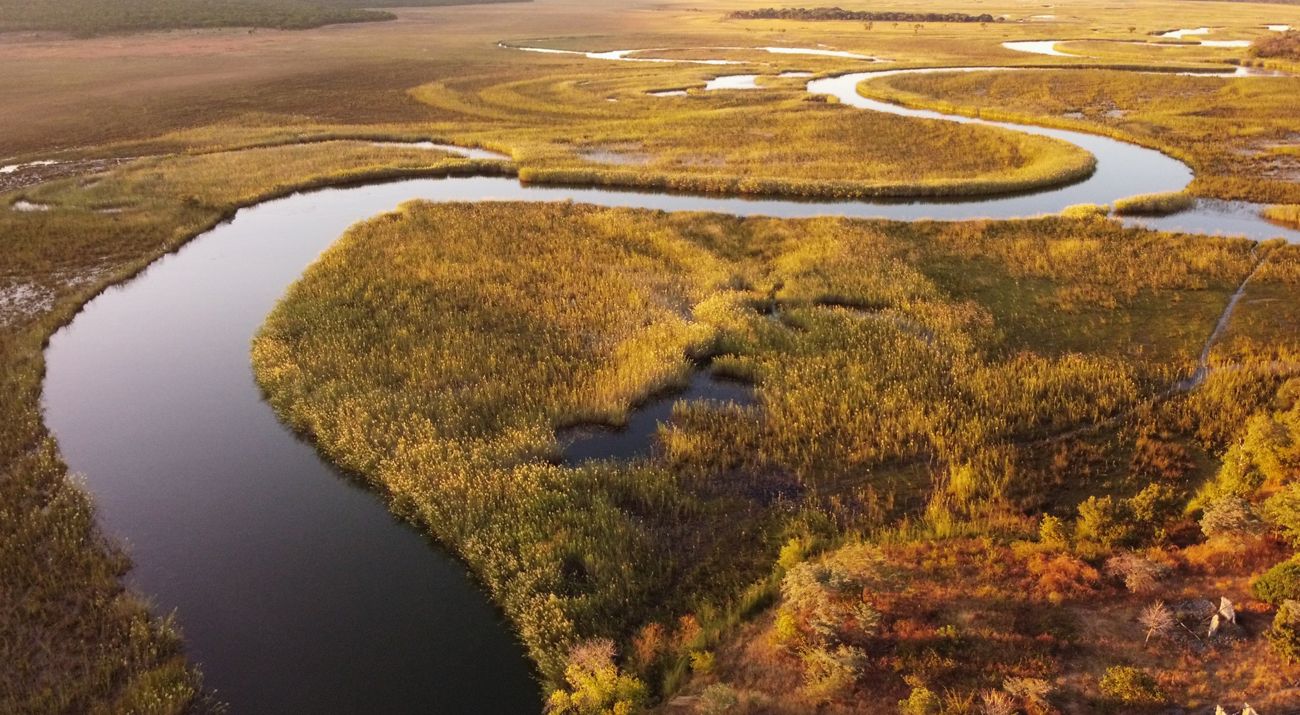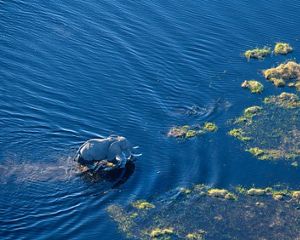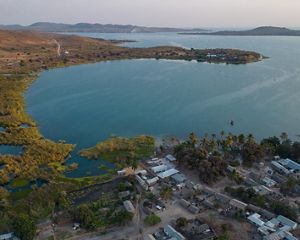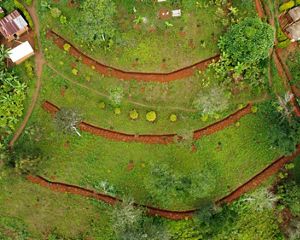How We're Helping Protect Freshwater in Africa
Africa's freshwater resources are under pressure. Nature can help.
Africa is a continent of stunning transformations. Take Botswana, for instance, where the six-month dry season transitions to wet in dramatic fashion. When rains come to Angola’s highlands, waters flow down to the Kalahari Desert’s parched red sands and Botswana’s renowned Okavango Delta wetlands double in size.
As life-giving water floods the land, wildlife—more than 700 animal species in all—also pour back in. The rumble of hippos carries across the wetlands, where crocodiles lie in wait among the reeds and tigerfish swim through the water. On solid ground, prides of lions and packs of wild dogs stalk their prey. In a matter of months, receding floodwaters will give way to desert sands, and wildlife will be on the move again, following where the water flows.
The Okavango is only one of Africa’s expansive freshwater ecosystems that The Nature Conservancy is working to protect—and it's a race against time. With Africa’s population on pace to double by 2050, extraordinary demands will be put on the continent’s freshwater resources for industry, agriculture, and energy. But will there be enough water—not only for people, but for Africa’s iconic fish and wildlife as well?
The Urgency to Protect Earth's Fresh Water
-
1/3
The world has lost nearly one-third of its freshwater ecosystems since 1970.
-
83%
Monitored freshwater populations have declined by an average of 83% since 1970.
-
1M
TNC's goal is to conserve 1 million kilometers of the world's rivers by 2030.
-
30M
TNC also aims to conserve 30 million hectares of lakes and wetlands by 2030.
The good news is that investing in nature offers a clear pathway to protecting and restoring the freshwater systems on which nature and people depend. And safeguarding Africa's fresh water is a core contribution to TNC's 2030 Goals. By leading with science and bringing people together, TNC helps strike the right balance for freshwater ecosystems and people to thrive in the following key landscapes.
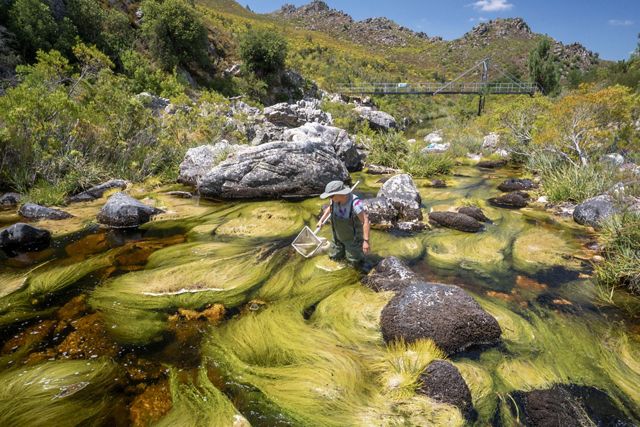
Resilient Watersheds
One of TNC's biggest impacts on freshwater resources in Africa has been in catalyzing more resilient watersheds—by conserving the sources of water used by millions of people. Water funds are public-private partnerships that allow downstream water users and the international community to invest in protecting strategic source waters and the diverse landscapes that replenish them.
Water funds were developed by TNC and the first one launched in Quito, Ecuador, in 2001. Now, water funds—along with other watershed investment approaches supported by TNC—are shaping freshwater conservation across the continent.
In 2020, we had two water funds in Africa: The Upper Tana-Nairobi Water Fund and the Greater Cape Town Water Fund. Today, we support more than a dozen in various stages. This tremendous growth is thanks in great part to our strategy of equipping and inspiring partners in new source waters areas to learn fast and adopt the model.
Read more about the complex journey of water funds in Africa.
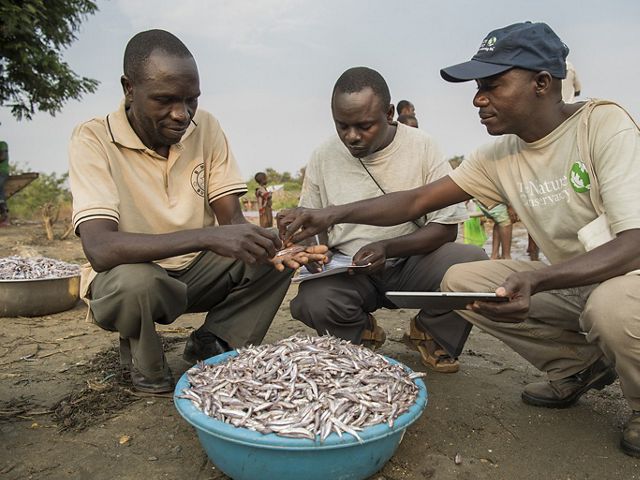
Tuungane and Lake Tanganyika
TNC’s Tuungane Project, a partnership with Pathfinder International, has worked on the shores of Lake Tanganyika in Tanzania for more than a decade to create healthier families, fisheries, and forests. In fact, more than two dozen lakeside villages enact and enforce their own sustainable fishing regulations through Beach Management Units (BMUs).
Now, building on these successes, TNC is supporting the rapid scaling of fisheries best management practices across the entire four-nation lake basin in Tanzania, Zambia, Democratic Republic of the Congo, and Burundi. Working in partnership, we’re combining groundbreaking science, local knowledge, and proven methods to deliver on a unified vision of success.
Strategies include: identifying the most ecologically important areas of the lake and helping communities and government protect them; increasing the rights and capacity of communities to co-manage their fisheries locally; co-creating a supportive new lake-wide management and monitoring network; testing sustainable enterprises; and collaboratively addressing emerging threats to sensitive areas from caged aquaculture and poorly sited energy development.
Our goal is to protect and help manage over 100,000 hectares of the lake and its associated wetlands, touching the lives of nearly 100,000 people through improved place-based economic opportunities, improved security over land, and meaningful participation in decision-making over resources.
We Can’t Save Nature Without You
Sign up to receive monthly conservation news and updates
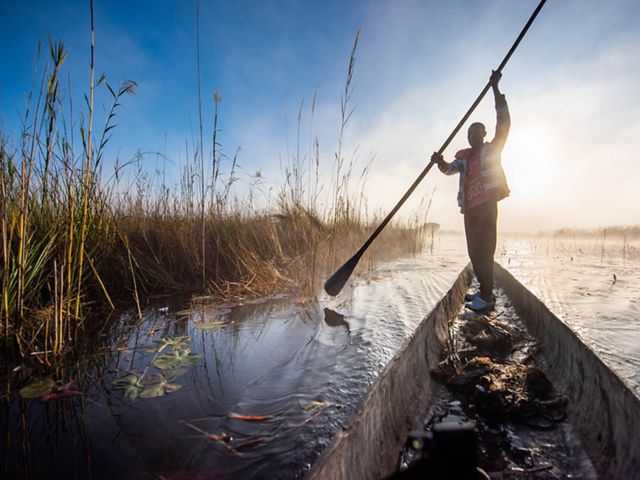
Okavango Basin
For the aforementioned Okavango Delta to spring to life each year, the waterways from Angola must be maintained. Around 95% of the delta's water originates in Angola, where proposed diversions, hydropower dams, and commercial agricultural projects could jeopardize up to half the water flow. In addition to globally important freshwater and terrestrial biodiversity, the headwaters support local subsistence and livelihood activities.
To minimize damage from these threats, we are implementing three main strategies:
Conservation: We are supporting community-led management of fisheries, forests, and agricultural lands as well as related livelihoods in Angola’s source watersheds. Working with local partners, we have already helped establish fisheries cooperatives in five communities and are working with three additional communities to create forest cooperatives. We are also supporting the government to explore new and enhanced protected areas that benefit local communities.
Smart Development: We are providing science and tools to enable smart development that meets people’s needs while minimizing ecological damage and impacts to vulnerable communities. Our initial priority is to guide new renewable energy investments away from damaging large-scale hydropower dams and toward lower-impact solar power.
Sustainable Finance: We aim to create innovative long-term financing mechanisms to support conservation and human progress into the future with decreasing reliance on philanthropic support and government funding.
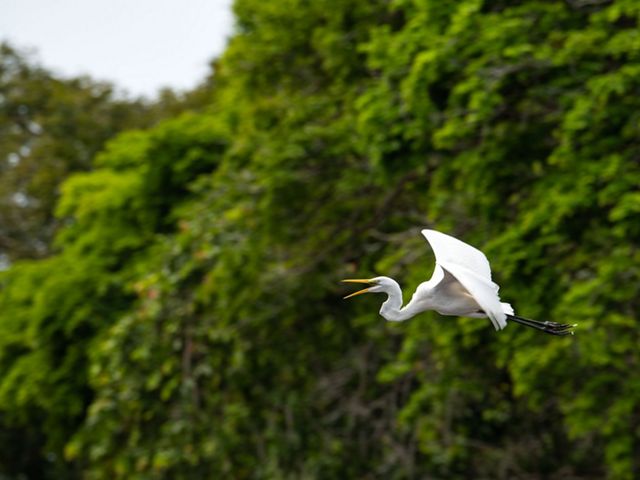
Gabon's River Basins
Gabon is a country of forests and freshwater—it boasts 88 percent forest cover and more than 20,000 kilometers of free-flowing rivers. Because its rivers and lakes are so important, Gabon became the first country to commit to adding freshwater as an additional habitat to protect within its 30x30 commitment.
And at the UN Convention on Biological Diversity in late 2022, TNC CEO Jen Morris and Gabon Minister of Environment Lee White formally signed an agreement to collaborate on a broad conservation effort that will allow the country to meet its commitment to protecting 30 percent of lands, ocean, and freshwater by 2030 through Project Finance for Permanence.
TNC has been working with the government of Gabon on ways to protect its freshwater resources for the past decade, including supporting the development of an Atlas of the country's water resources that indicates areas of high biodiversity. Additionally, TNC developed, in collaboration with the Ministry of Energy, a national planning system for hydroelectricity production projects that would have the lowest possible environmental impact.
In addition, working closely with local partner Organisation Ecologique des Lacs et de l’Ogooué (OELO), TNC supported the establishment of community-led sustainable fishing cooperatives and a sustainable freshwater fisheries management plan for the Bas Ogooué area that was signed into law by ministerial decree.
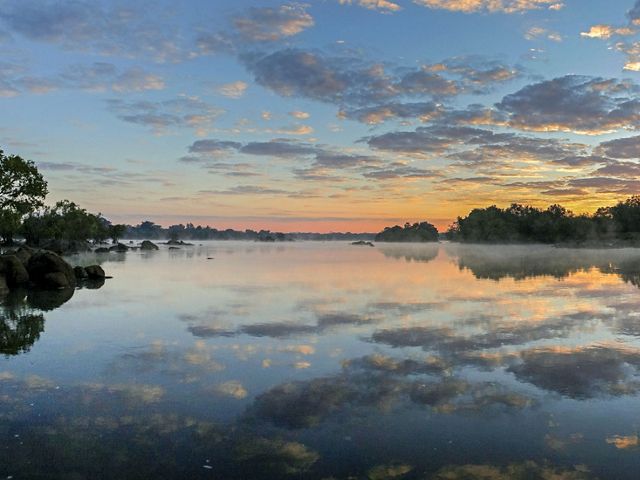
Emerging: Zambia's Greater Kafue Ecosystem
A tangle of rivers, lakes, and wetlands weaves across Zambia’s 6.5-million-hectare Greater Kafue Ecosystem (GKE). Drawing its name from the Kafue River, the GKE supports a valuable and complex community-based fishery, plus globally important freshwater and terrestrial biodiversity. Unsustainable resource management—including fisheries—and limited benefits to communities from conservation are top threats to Kafue National Park and surrounding community areas.
While lands within the ecosystem enjoy protected status, the waters lack formal protection and have limited management. By supporting effective management of these fisheries—including collaborating with local communities to develop zoning plans—we can contribute substantially to increasing conservation and resilience across the entire landscape.
TNC will be working with fishing communities, the Zambian Department of Fisheries, African Parks, and other conservation partners to: work toward the establishment of fisheries co-management structures that support rules-based sustainable resource management and local enforcement, define areas of high aquatic conservation value, and develop a Fisheries Action Plan across the ecosystem, ultimately translated into Fisheries Management Plans for six key fisheries.
By working smartly and together with partners, we believe we can protect the diversity of life that Africa’s healthy wetlands, rivers, and lakes make possible and secure the contributions that these freshwater systems provide to African communities and economies.
